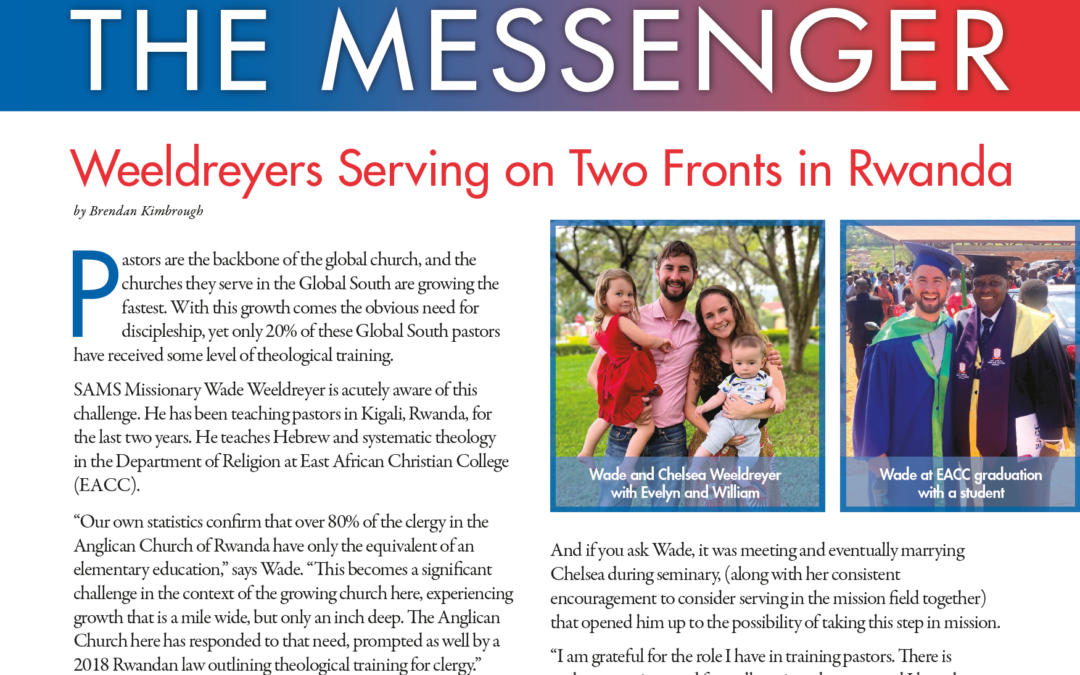
by Brendan Kimbrough | Dec 21, 2024 | Rwanda

We see the Light of the World…
… when women and children gather at the Word Made Flesh ministry center in Kigali. where Chelsea serves. The prophet Isaiah wrote that “The people walking in darkness” would see a great light, and that the Lord would increase their joy. While 21st-century at-risk populations were not necessarily on Isaiah’s radar, we continue to see this prophecy fulfilled in our midst as God shares his grace with the world. The women and children in Kigali’s slums face the darkness of poverty: loneliness and depression; financial insecurity; abuse and neglect; hopelessness; and shame, to name a few.
But when they gather together as a Christ-seeking community with care for both body and soul, they are reminded that the Light of Life renders the darkness powerless in the grand scheme of things. The challenges of poverty continue to exist, but do not have the final word. The Great Light, Jesus, increases their joy even in the midst of hardship.
I see this Light of Life in the peace of the women’s smiles, and their sense of ease and refuge being in each other’s presence. I see this Light of Life in children who dance and play because their fears lessen when they are assured that the Lord loves them and wants abundant life for them. Praise be to God that the Great Light himself, Jesus, continues to enlarge his people and to bring joy — and that we as missionaries are witnesses to tell of it!

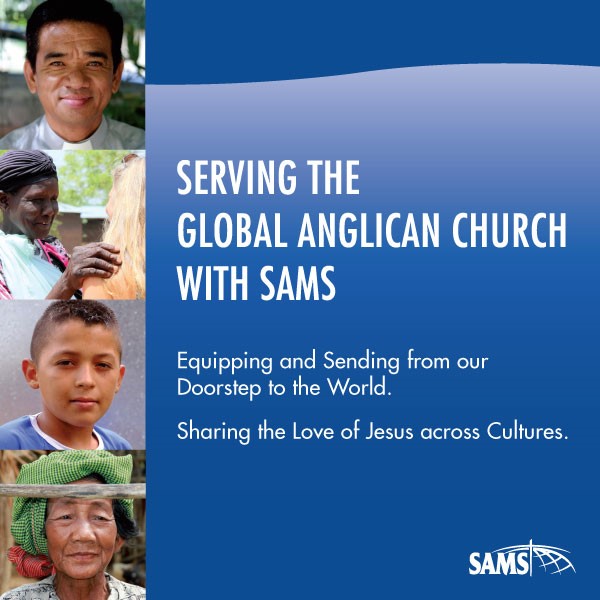
by Brendan Kimbrough | Nov 5, 2024 | SAMS Missionaries
EXPLORE CROSS-CULTURAL MINISTRY
Discern your talents and vocational calling
ZOOM EVENT
TUESDAY, NOVEMBER 12th at 8:00PM ET
The Anglican Church is rapidly expanding, especially in the Global South, and SAMS is meeting this demand head-on with a range of opportunities for cross-cultural service in the many countries where the church is present. We partner with dioceses and parishes who know the cultural context and we work to walk alongside those who are discerning a call to help clarify and guide.
You’ll hear from SAMS Mission Directors and five different SAMS Missionaries about the present landscape internationally and domestically for long-term and short-term service opportunities. Learn how you might serve the global church in theological education, teaching, outreach to refugees and more, and why cross-cultural service is so exciting and fulfilling.
TO ATTEND: Contact Nita via email at info@sams-usa.org and request the Zoom link
You will have the opportunity to hear from SAMS missionaries about their experiences serving both in the U.S. and globally. They will be available to answer your questions.
Hosted by:
Stewart Wicker – SAMS President and Mission Director
Denise Cox – Associate Mission Director
SAMS Missionaries
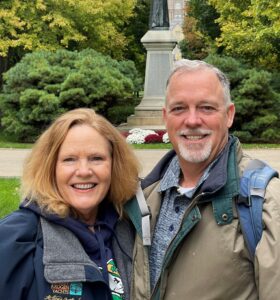
Bishop Todd and Patsy McGregor – Todd is a SAMS Missionary Coach and spent years serving as a missionary throughout Africa.

Rev. Jessica Hughes – Jessica has experience serving in theological education in Uganda.

Rev. Daniel and Rebecca Behrens – Daniel and Rebecca minister among refugees and recent immigrants in Pittsburgh.

Lucy Chaves – Lucy overseas the SAMS Bridger Program, a short-term intern service program. She mentors youth in Kenya through her ministry, Kenya Connection, encouraging them to be Godly leaders.

Anthony and Anna Pelloni – The Pellonis serve in Cambodia helping to disciple young Cambodians are helping to plant a new Cambodian church.
TO ATTEND: Contact Nita via email at info@sams-usa.org and request the Zoom link
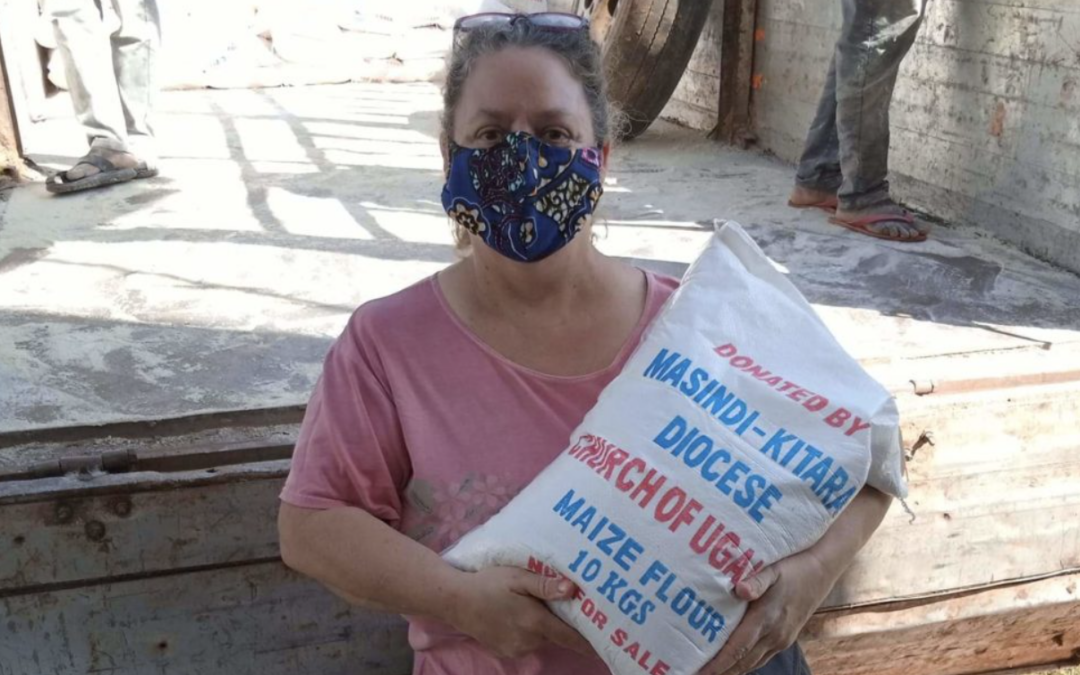
by Brendan Kimbrough | Aug 30, 2024 | Health, SAMS Missionaries, Uganda
Life is busy for Janine LeGrand. This long-tenured SAMS Missionary works tirelessly to improve the healthcare of the people in the Masinda-Kitara Diocese in western Uganda. Janine is constantly educating people about practicing good health in her job as the Diocesan Health Coordinator. Think basic information like clean water practices, good nutrition, and sanitation. But where Janine makes the biggest impact is showing the love of Jesus through her personal interactions throughout the area. Recently she hosted the members of the Diocesan Office (the Secretariat) to her home to strengthen bonds and show them some of the ways she prepares healthy food.
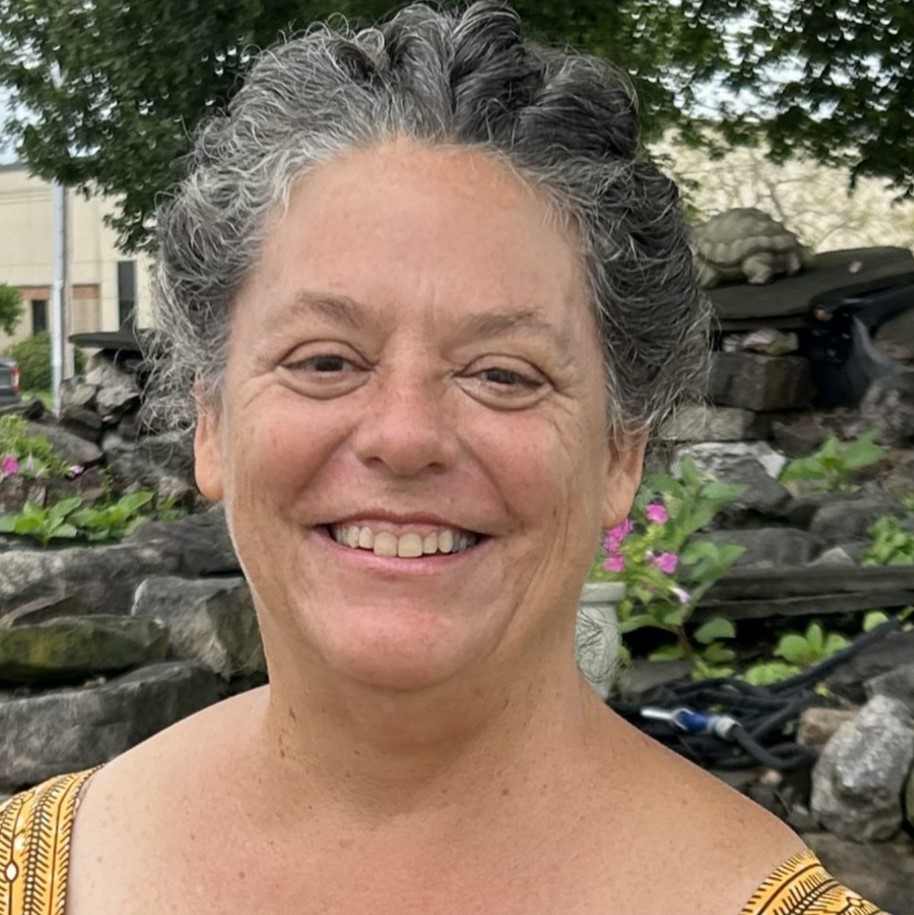
Her diocese has a close working relationship with One World Health (OWH). The U.S. OWH Medical Team was about to do one of there regular medical visits, and Janine’s team of volunteers were busy organizing the sites where the teams meet patients. Partnering with three parishes, Janine’s team, the OWH Team and workers from Masindi Kitara Hospital saw well over 1,200 people across 5 days. This gives Janine and her team ample opportunity to visit with people and pray with them. They also share the Gospel of Jesus Christ.
The Lord has used many experiences in Janine’s life to prepare her for the mission field. Born in Los Angeles, Janine attended UCLA but left after a year to pursue her interest in feeding people sustainably through fish farming in Hawaii. There were fish farms in Hawaii and her parents had recently moved there, so it seemed a good fit. Here fish farming work led her to earn a degree in Zoology and she began teaching science in Hawaii. An opportunity opened up in Japan and she taught there for three additional years, but she felt herself becoming burned out on teaching. She retrained first as a vet lab tech and then in medical assisting. Through these experiences God placed a burden on her for the mission field.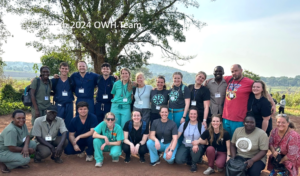
Janine works with people to also fit them with reading glasses. It began with an emphasis on church leaders, but she opened it up to the community when she was able to acquire enough glasses. What a huge difference it makes when a person can read the Bible again, or when an accountant can see well enough to keep the books. In addition to fitting people with glasses, she continue to distribute health messages through church leaders, WhatsApp and text messages. Her health education information is now being sent to schools in the area as well.
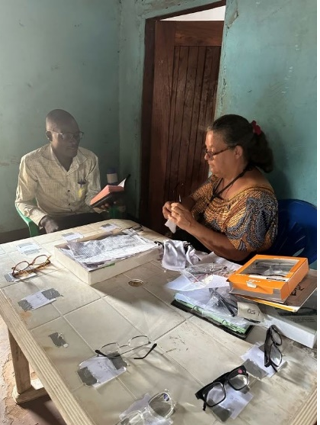
Janine is always looking for ways to innovate where health education, nutrition and creation care meet. With deforestation becoming a much bigger issue and burning bans being enacted in some areas of Uganda, Janine has been working on a design for a solar stove that people can use to cook healthy meals without burning wood, and doing so inexpensively.

by Brendan Kimbrough | Aug 30, 2024 | SAMS Missionaries
by Mary McDonald
Originally posted August 2, 2024, Anglican Compass
A Biblical Mandate for Creation Care
And God blessed them. And God said to them, “Be fruitful and multiply and fill the earth and subdue it and have dominion over the fish of the sea and over the birds of the heavens and over every living thing that moves on the earth.
Genesis 1:28”
In his first commission to us in Genesis 1, God gave us two interconnected orders. The first was to be fruitful and multiply. We have done quite well with that part, with our world population now over eight billion. The second was to rule over and tend to his creation. We don’t often do as well with that one. However, the Church has an opportunity to lead the way in stewarding creation and, in doing so, point others to their Creator.
Read more…










